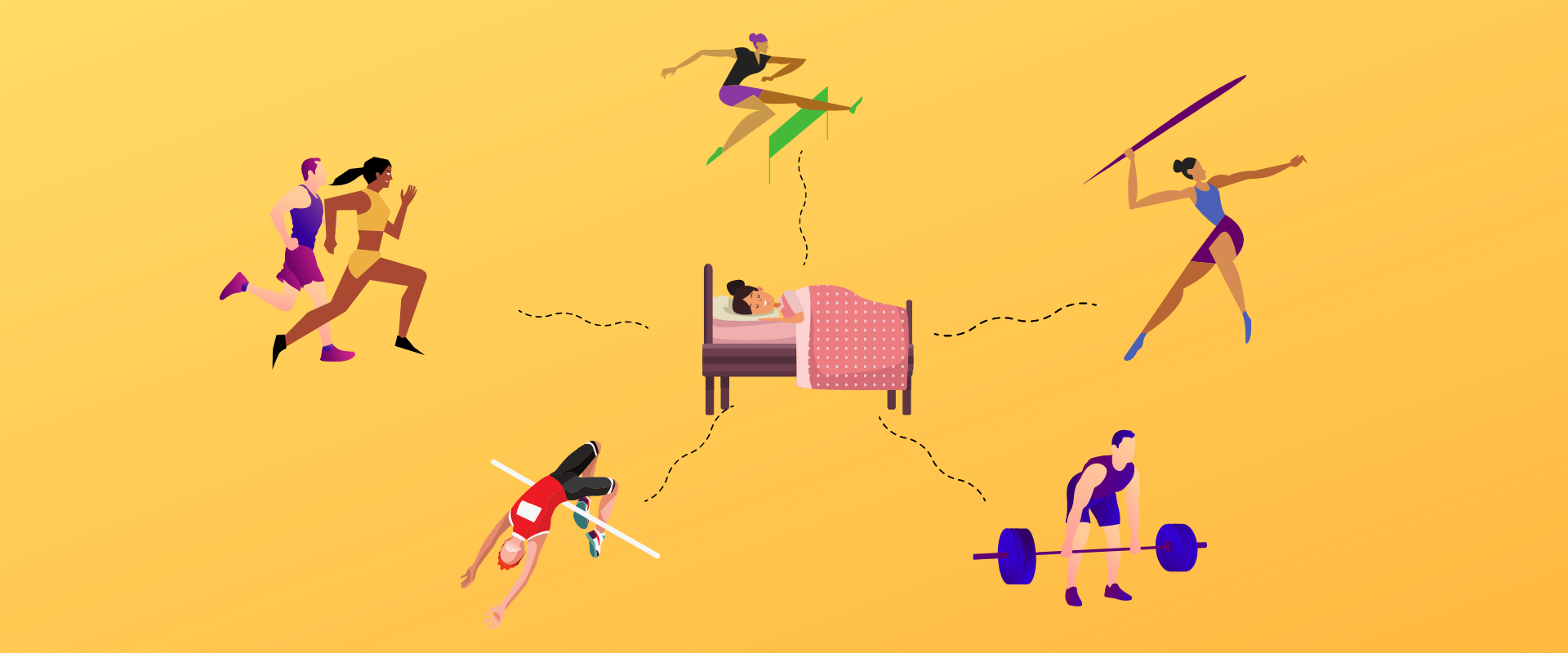Sleep and Athletic Performance
April 8, 2022 | 4 min read

April 8, 2022 | 4 min read

The inevitability of quality sleep and its importance in a healthy lifestyle design is finally being acknowledged, well, at least by the researchers working in this area. However, the culture at large perceives sleep as a dispensable appendage and a loss of productive time. This misunderstood perception of sleep has affected our society in many ways.
As much as sleep is essential to each individual, athletes tend to have a more tangled relationship with sleep. Sleep affects every part of their life from training, injuries, metabolism, accuracy, successes and failures. Yet, this significant yet simple correlation is most often overlooked during training. So how exactly does sleep affect athletic performance?
Evidence have pointed out that both sleep duration and sleep quality directly relate to improved track performances. Even though the standard sleep recommendation for adults has been somewhere between 7-8 hours studies seem to argue for a larger share of athletes’ time to sleep. They will require around 9-10. hours of sleep to allow an adequate window for recovery between strenuous bouts of exercise.
In a survey-based study conducted on 103 individuals, where their quality of sleep and duration was measured before the competition, it was found that 70% of the participants reported worse sleep quality, and the majority slept less than 8 hours. Pre-competitive periods are usually troubled by tremendous pressure and anxiety, and studies speculate that these have been directly affecting the athletes’ sleep cycles. In addition to that, sleep also bears the brunt of long-distance travels, jet lags and disturbances to the circadian rhythms. These travels across the time zones and transmeridians can cause fatigue, disorientation and general discomfort. But, often, athletes do not get enough time to be entrained to these new conditions because of the training schedules and competition timings. All these compound the increased levels of stress and anxiety that appear around the time of competition and significantly dampen the quality of sleep. Recent literature suggests that somewhere between 37 to 78% of elite athletes suffer from pre-competition insomnia symptoms.
In an interesting study of 42 adult netball athletes, researchers set out to assess the kind of relationship between sleep and success rates in the national tournament. They found that the top two teams of the tournament showed greater sleep duration and sleep quality than the teams at the bottom of the table. As it turns out, sleep quality turned is a solid predictor of a team’s success in the tournament. However, this study has only been done in team sports and wouldn’t be valid enough to extrapolate these results to individual athletes.
Even though all this evidence exists and points out the strong correlation between sleep and athletic performances, researchers have not been able to provide conclusive evidence of why it is in the first place. For instance, sleep loss has shown that it made athletes exhaust early during training schedules and a single night of restricted sleep impairs trial performances the next morning. Similarly, neuromuscular fatigue could also be one other reason. Accuracy in athletic events has been frequently shown to have a direct relationship with quality of sleep and duration of sleep. A night sleep of 5 hours in tennis players reduced their serving accuracy up to 53% compared to the accuracy after a whole night’s sleep. Similarly, in basketball players, an increase of sleep to 6.6 to 8.5 hours per night over 7 weeks noted a 9% increase in free-throw accuracy.
Another survey that closely resembles this example is a study that followed middle and high school athletes. They found that individuals who got less than an average of 8 hours of sleep were more likely to report an injury. This study was supported by a similar survey conducted on different athletes from 16 different individual and team sports. It showed that an increased training load and a decrease in sleep duration are strongly correlated to increased sports injury. Even though the
direct mechanism of such a correlation may not be clear, sports scientists hypothesise that impairments in reaction time and cognitive functions, fatigue and exhaustion could explain these results.
As far as we the researchers and studies have looked, sleep deprivation is the recipe for failure and, we hope both the athletes and caretakers gave it as much consideration as everything else.